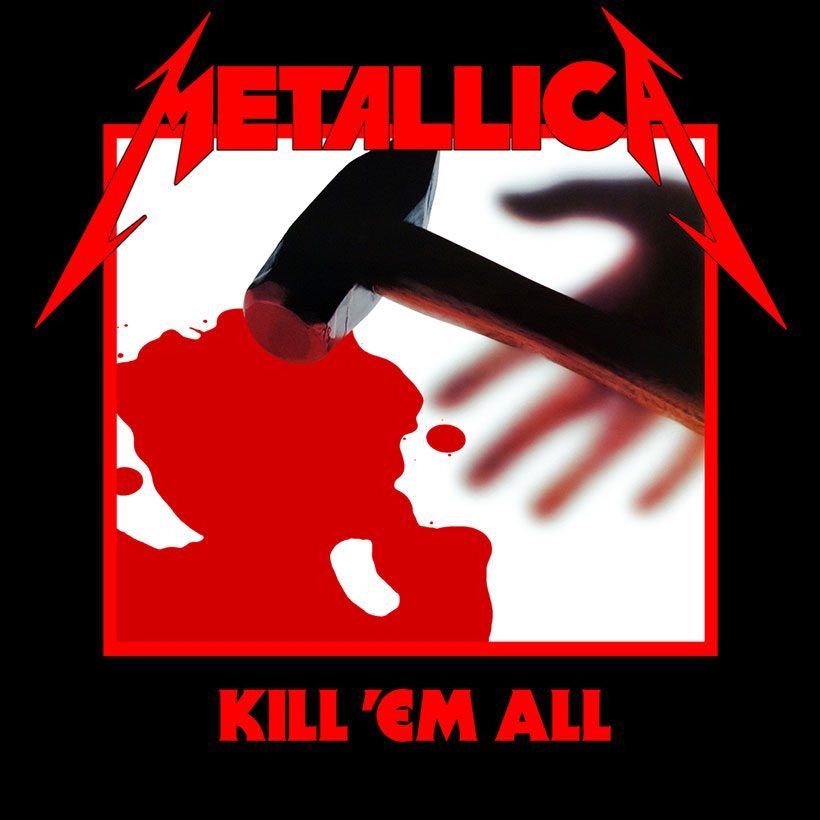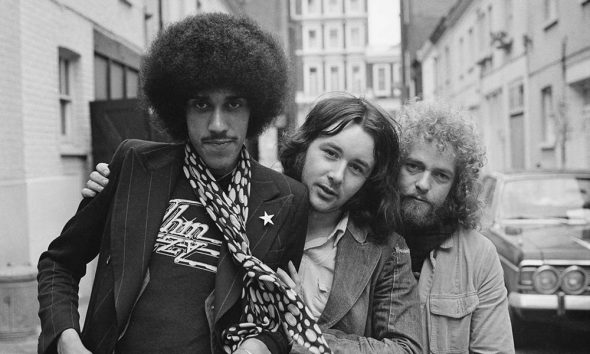‘Kill ’Em All’: The Influence Of Metallica’s Murderously Good Debut Album
Metallica’s first record was the springboard for a band that would eventually become one of music’s biggest acts.

It would be no understatement to say that Metallica’s debut album, Kill ’Em All, changed the world. Not only was it instrumental in shaping the direction of heavy metal in the 80s, but it was the springboard for a band that would eventually become one of the biggest-selling musical acts in history.
But fame and fortune were a few years away. In 1983 Metallica was, for the most part, still in their teens (guitarist Kirk Hammett turned 20 in November 1982, James Hetfield and Lars Ulrich would do so after the album’s release). Nevertheless, the band had built a steady following around their local Los Angeles scene, securing gigs on the strength of their infamous No Life ’Til Leather demo. And it was those tracks that would form Kill ’Em All.
Listen to the best of Metallica on Apple Music and Spotify.
Pivotal to the development of thrash metal
Before recording sessions started, however, Metallica’s original bassist left and the band’s favored replacement, Cliff Burton, would only join on the condition that they relocate to San Francisco. The members obliged, securing Burton’s involvement, but when they arrived in New York to record Kill ’Em All, there was another line-up shift: the group replaced guitarist (and future Megadeth founder) Dave Mustaine with Kirk Hammett, from fellow thrashers Exodus. Within a month their new recruit had learned the songs, laid down his parts, and reworked the solos for the debut album’s release on Megaforce Records.
For Kill ’Em All, Metallica had taken their New Wave Of British Heavy Metal influences, dropped the tuning, doubled up the kick drums and played it all at a furious pace. With violent lyrical themes of warfare, the band had produced not just a fierce debut album, but one that was pivotal to the development of thrash metal. While Hammett’s former band should be honored with instigating the genre, Metallica were the ones to take it onto a global stage.
Like nothing before it
The frenetic “Hit The Lights” and “Whiplash” were the savage sound of a band who lived for metal, and they soon became anthems for a restless youth, hungry for a new sound. Thrash was the antithesis of the synth-pop and AOR that dominated the charts in the early 80s, and an antidote to the glam metal scene emerging on LA’s Sunset Strip. But there was a musicality to the likes of “The Four Horsemen” and “Phantom Lord” that showed songwriting chops beyond the band members’ years. Already Metallica had learned when a slower pace and groove can better serve a song’s passage.
Though Mustaine was no longer in the group, the band honored his contributions to their formative years by granting him writing credits where appropriate. One such track was “The Four Horsemen,” which was reworked slightly to separate it from Mustaine’s speedier version, named “The Mechanix,” which would later feature on Megadeth’s debut album.
Cliff Burton arrives
Burton arrived too late to be involved in Kill ’Em All’s core writing process, but despite being a classically trained musician he brought a more classic rock vibe to the band and was allowed a track to showcase his skills: the instrumental “(Anesthesia) – Pulling Teeth.”
When Kill ’Em All was released, on July 25, 1983, metal had barely heard anything of this speed and fury before, nor seen a band with Metallica’s level of streetwise savvy. The album has endured in the decades since, and the group regularly play its tracks today (most notably “Seek And Destroy”). Routinely held up for being as influential on metal as classic albums by Black Sabbath, Iron Maiden, and Judas Priest, Kill ’Em All is more than just a snapshot of its time.












